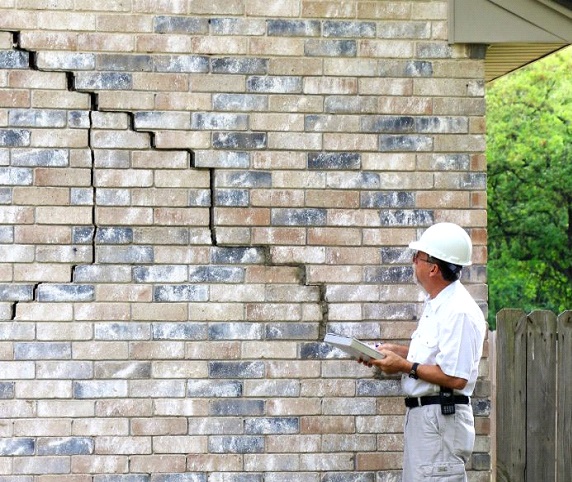
When was the last time you scheduled a crawl space inspection for your home? If it’s been several years, it’s probably time to call a foundation contractor! A full-scale inspection spots foundation damage and other issues before they become severe. In turn, you can schedule prompt repairs, keeping costs low and preventing secondary damage.
Additionally, a professional crawl space inspection might note risks to your property’s foundation. These risks include trapped humidity, overly moist soil, or damaged piers and beams. To ensure you’re keeping your home in good condition, check out some added information about these inspections. You can then discuss this with a foundation repair contractor near you as needed!
For further information, please visit us on the web at https://atlantafoundationrepairpros.com/.
Why Schedule a Crawl Space Inspection for a Home?
Before you go another year without a professional crawl space inspection, check out some reasons why this service is vital:
- A professional inspection might note small cracks and other damage along piers and beams. In turn, you can schedule patching, shimming, or other fixes before those cracks spread.
- Foundation inspections might also note sinking or toppling piers. Prompt shimming or other repairs prevent a home from then settling and sinking.
- Trapped moisture risks damaging electrical wiring, plumbing pipes, and other fixtures under a home. A full-scale inspection can spot this damage before it becomes severe, reducing the risk of plumbing leaks, electrical shorts, and similar issues.
- Soil moisture and humidity typically leads to costly foundation damage. However, an inspector might note humidity levels in the crawl space. Consequently, you might schedule encapsulation or install a vapor barrier before your home suffers foundation damage.
On the other hand, remember that a crawl space inspection might find that the space is in good condition! This is especially useful information if you’re thinking of selling your home or applying for an equity loan.
How Often Should You Check Your Crawl Space?
Homeowners should probably check their crawl space twice a year. This schedule ensures that you find trapped moisture and humidity before it risks damage. Also, it’s vital that you check a sump pump or dehumidifier in the space this often as well. Above all, you should check your crawl space if you notice signs of foundation damage around your home, including:
- Excessive moisture on interior concrete floors, such as in mudrooms or laundry rooms.
- Mold growth and mildew underneath carpeting or along upholstered furniture.
- Cracks along interior or exterior walls, roof eaves, interior ceilings, and other surfaces.
- Uneven surfaces inside and outside the home, such as interior floors or exterior porches.
- Creaking and groaning inside the house, and especially from floorboards under foot.
- Doors and windows that suddenly stick or locks that don’t work easily.
- Cold, drafty rooms in wintertime or hot and stuffy rooms in summertime
- A sudden spike in your utility costs
Is Crawl Space Cleaning Worth It?
Crawl space cleaning, encapsulation, vapor barriers, and other maintenance are excellent investments! Why keep your home’s crawl space clean and dry?
- Moisture, rubbish, and other debris often attracts insects and rodents to a crawl space. These pests might chew through wood framing, electrical wiring, and other building materials. Also, they can make their way inside your home, risking even more damage.
- A homeowner might use a clean crawl space for storage! Invest in some heavy-duty storage tubs and bins and you can then use the space for sporting goods, lawncare items, and similar materials.
- Mold and mildew in the crawl space can spread to interior spaces. Additionally, these usually create very unpleasant smells that might also make their way into your home!
- Moisture in a crawl space often works its way into your home’s interior rooms. In turn, this might risk rusted appliances, damaged floor tiles, mildew under carpeting, and similar issues.
- Homeowners and contractors often access appliances, utilities, wiring, plumbing pipes, and other fixtures through the crawl space. A clean, dry space ensures safer and faster access, for easier home repairs.
Above all, note that a damaged foundation often lowers a home’s value. On the other hand, a clean and protected crawl space can increase or at least protect those values. In turn, you can build equity in your home rather than lose it over the years!
How Much Does Crawl Space Encapsulation Cost?
Crawl space encapsulation involves installing thick plastic sheeting over the ground and along the home’s underside. This process blocks wood framing and other materials from absorbing that moisture, protecting a foundation from damage. Vapor barrier installation is similar but uses only thick sheeting along the ground, not the home’s underside.
Encapsulation and vapor barrier installation costs vary according to a home’s size and materials chosen. Homeowners might expect to pay anywhere from $1500 to $15,000 for this service, with national averages hitting around $5500.
Before you avoid scheduling crawl space encapsulation, keep in mind that foundation repairs are often even costlier! Additionally, neglecting your home’s crawl space can mean secondary damage, as mentioned above. Repairing wall cracks, cleaning mold, and other such fixes add to foundation repair costs. In turn, investing in crawl space encapsulation is often a better investment overall.
How Do You Avoid Crawl Space Damage?
Crawl space encapsulation is an excellent choice for avoiding foundation damage to your home. However, you might also ask a foundation contractor or landscaper to check your property’s grade. This refers to the slope of your lot. Grading the property toward a street or drain keeps moisture out of the crawl space.
Also, a foundation repair contractor might install a French drain system, to trap underground moisture and direct it away from the foundation. He or she can also install a dehumidifier or sump pump in the crawl space, to keep the area clean and dry.
Additionally, it’s vital that homeowners maintain their property. A broken sprinkler system or plumbing pipe can mean excessive moisture buildup that then collects around a home’s foundation. Clogged gutters also allow water to run over their sides. On the other hand, maintaining these fixtures around your property can keep that moisture away from the foundation, protecting a crawl space from damage.











